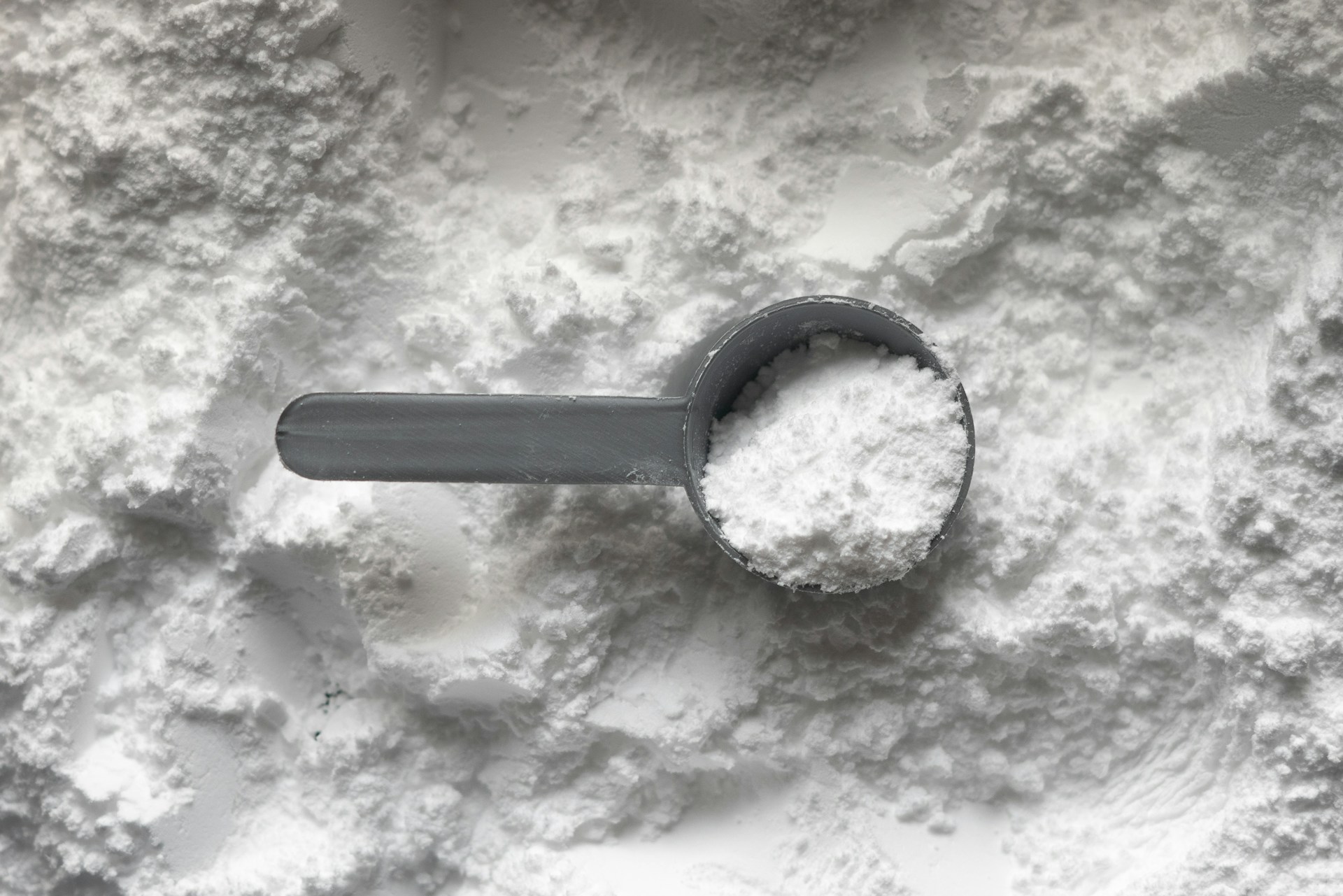
Collagen peptides have gained a lot of popularity in the health, beauty, and fitness industries over the past decade, offering many health benefits, from improved skin appearance to stronger muscles. Powdered collagen supplements, which come in a large container similar to protein powder, are the most popular. You might also see collagen in capsule supplement form. Collagen supplements are made of small pieces of animal collagen and contain mostly protein. Despite this, your daily collagen supplement should not count towards your protein macro goals. Here’s why.

Does collagen count towards protein goals?
Hitting your daily target protein macro is an essential component of any healthy diet. Given that protein is the building block of your hair, skin, bones, muscles, and skin, your body relies heavily on the amino acids found in protein. Not to mention, protein helps give us energy and keep us full between meals. But collagen powder is not quite the same as a protein powder supplement.
Unlike a complete protein powder supplement, collagen is considered an incomplete protein. This means that it does not contain all of the essential amino acids that the body needs. For this reason, a collagen peptide supplement cannot replace consuming protein from food or be substituted for a protein powder supplement. Since collagen is not a protein itself, it does not contain the nine essential amino acids that your body needs for its functions. That is why it’s so important to consume foods that contain these amino acids, such as beef or poultry.
This doesn’t mean you should rush to ditch your collagen supplement. Collagen is still a great supplement to consume daily for the health of your skin, joints, and bones. If you’re concerned about the appearance of your skin aging, a few studies have shown that oral collagen supplements can help improve skin elasticity and hydration. By helping your body to create more of its natural collagen, consuming collagen peptides may help prevent wrinkles and sagging of the skin associated with age.

How to use collagen peptides
When it comes to your nutrition goals, you won’t want to count collagen peptides when counting your daily grams of protein. However, collagen can be consumed with other sources of protein to incorporate into your wellness routine. For example, some people mix collagen peptides into their protein powder shakes — a great way to kill two birds with one stone.
Although protein powder supplements contain all nine essential amino acids, it’s still important to balance your nutrition with protein from fresh food sources. Great sources of protein from nature include lean meats, eggs, fish, dairy, and nuts.



